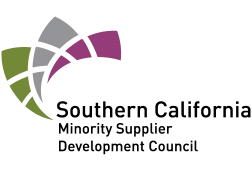
Although most businesses want quick debt recoveries, debt collection is a delicate process, and as a client, you should work with a debt collection agency that provides a professional service. Especially in light of CFPB’s new debt collection rule or The Debt Collection Licensing Act in California, your debt recovery agency must be up-to-date on the changes in regulations that affect how they can operate.
Curious what these regulations entail and what they mean for debt recoveries? Read this article to find out.
TABLE OF CONTENTS
New Regulations for Debt Collections: CFPB’s New Debt Collection Rule
Regulation F became effective on November 30, 2021. It is an amendment to 12 CFR part 1006, which implements the Fair Debt Collections Practices Act (FDCPA), and is enforced by The Bureau of Consumer Financial Protection.
The original Act sets guidelines for debt collectors on how to conduct their business and makes it illegal to harass or threaten debtors in the course of debt recovery. The new rule clarifies the original guidelines as it outlines how debt collectors can communicate with debtors, and defines debtor rights in the process.
Also Read: Everything You Need to Know about Debt Collection From Your #1 Collection Agency
What are the Main Requirements of Reg F?
The key provisions of Reg F address when and how debt collectors can contact debtors, by setting rules for phone contact or electronic communications and giving debtors the right to opt out of the communications. Additionally, Reg F outlines a model validation notice and requires collections agencies to keep their records for three years.
» Telephone Call Frequency
Under Reg F, debt collectors are presumed to comply with a prohibition on repeated or continuous phone calls about a debt. In practice, this means that debt collectors cannot contact debtors more than seven times in seven consecutive days or within seven days after a successful phone conversation with the debtor.
» Limited-Content Messages
A limited-content message is a voicemail message left by a debt collector that the CFPB does not consider a “communication”.
To qualify as a limited-content message, the voicemail must include components such as:
- The name of the debtor
- A request to respond to the message
- The name of the person to contact
- A telephone number to return the call
Limited-content messages may also include information such as a greeting, a suggested time and date for the debtor to reply, or an explanation that the debtor might speak to the company representatives when returning the call.
» Electronic Communications
Texts and emails are allowed under the new rule, but debt collectors must seek permission to use these channels, and offer debtors the possibility to opt out of their communications. They also must make an effort to avoid contacting the debtor at inconvenient times.
Similarly, debt collectors can contact debtors on social media if they keep their messages private, identify themselves as debt collectors and provide a way to opt out of their communications.
» The Debt Collection Validation Notice
The collection agency must provide certain information to the debtor at the time of first contact (or within five days of the first contact). If this information is provided electronically or in writing, it is called a validation notice.
A validation notice must include information that helps the debtor identify the debt such as:
- The debt collector (with name and address)
- The creditor to whom the debt is owed
- The amount owed and an itemization of the current amount (interest, fees, payments, and credits since the itemization date)
- The debtor’s rights on how to dispute the debt
The CFPB provides a model validation notice for easier compliance with these requirements.
» Credit Reporting
Debt collectors can report the debt to a credit reporting agency after they have talked to the debtor about the debt (by phone or in person) or send an electronic message and wait 14 days (in case the message is returned undeliverable).
A debt collection validation notice implies that debt collectors have met their requirements to report the debt to the credit reporting agency, provided they comply with credit reporting laws.
New Regulations for Debt Collections in California: The Debt Collection Licensing Act
The new year has seen another change in regulations affecting debt collection specialists operating in California: The Debt Collection Licensing Act (DCLA).
Effective January 1, 2022, the new law requires debt collectors to be licensed with the California Department of Financial Protection and Innovation (DFPI). Debt collectors had to apply for a license before December 31, 2021, to avoid being barred from doing business in California until the license is issued.
What are the Main Requirements of the DCLA?
In addition to being licensed with the DFPI, the new regulation has other requirements for debt collectors. These include filing their reports under oath, submitting to examination and criminal background checks, maintaining surety bonds, and paying their pro-rata share of the costs incurred by the DFPI.
Furthermore, debt collectors must share their licensing number during telephone calls upon customer request and display it in their written communications (including electronic communications and using at least a 12-point).
How to Find a Compliant Debt Collection Agency Near Me
While the above regulations do not apply to creditors, as a business, it is in your interest to work with collection specialists who play by the rules. A trustworthy agency will answer your questions about the laws they comply with, their licensing status with agencies like the DFPI, or if they are members of any reputable association. You can also find this information on the website of the debt recovery agency.
Coast to Coast Financial Solutions, for instance, fully complies with federal laws, including the Fair Debt Collection Practices Act (FDCPA), the Fair Credit Reporting Act (FCRA), and the Health Insurance Portability & Accountability Act (HIPAA) and is a member of several associations in California.
Coast to Coast can help you with debt collection strategies tailored to your business needs while ensuring compliance with the law. Call us today at 805.506.8195 or send us a message to learn more about our services.





